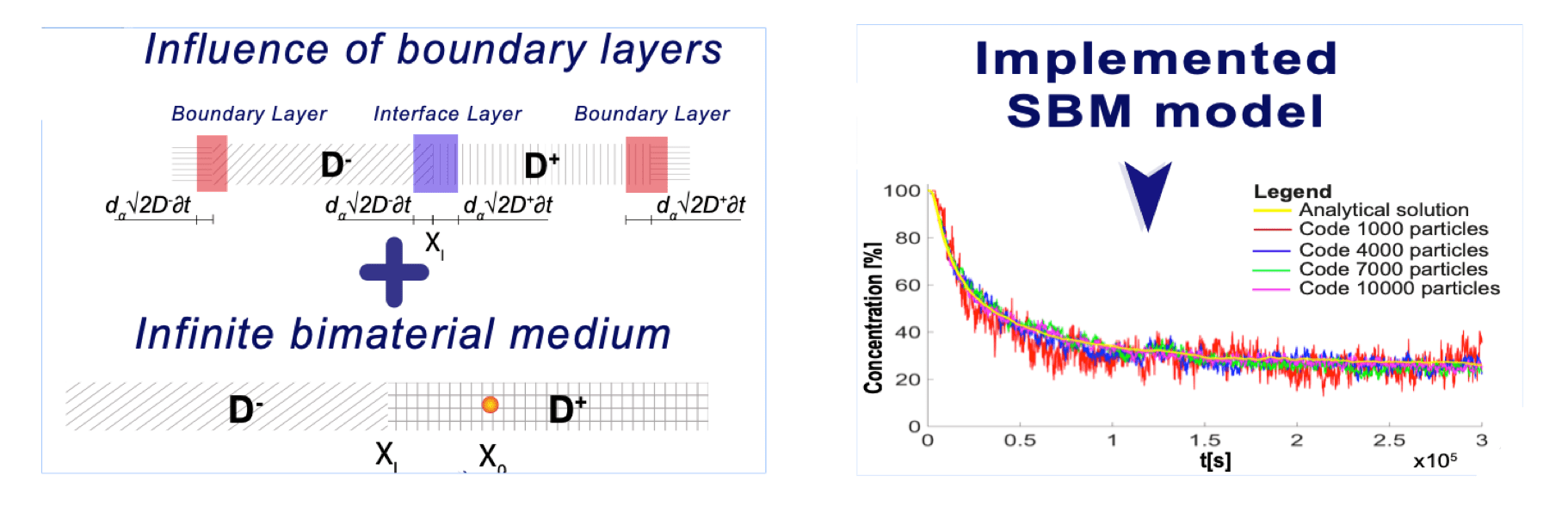Uncertainty Assessment
Inverse theory for spatially variable diffusion coefficient
In natural porous media such as river sediments, the heterogeneity of the material and the spatially varying flow and turbulence characteristics may produce a variation in the effective diffusion coefficient. Advanced computational model models based on the stochastic SBM was developed to simulate mixing process in domains with spatially variable (discontinuous)diffusion coefficient. The model was grounded on the particle tracking method, it simulates the behaviour of particles over the discontinuity interface.

Global sensitivity analysis
Mathematical flow models (i.e. subsurface flow, mass transport) are used to investigate a wide variety of hydrogeological conditions such as managing groundwater resources assessment, prediction, and remediation for contamination. To construct a groundwater model choosing and identifying the appropriate parameters is an imperative step. Inverse methods are broadly applied in the field of hydrology to solve problems regarding groundwater modelling. In general sense, inverse modelling refers to the process of using the results of actual observations/measurements to conclude the values of the model and/ or its parameters characterising the system being modelled. The evaluation of estimated parameter uncertainty is the most focused on in the hydrology/groundwater inverse modelling literature as it is the dxs most relevant factor affecting mass transport prediction. It is of paramount importance to quantify contribution of uncertain parameters in uncertainty of process modelling and this requires developing a reliable theory for rigorous sensitivity analyses which is the aim of this project. The project relies on Global Sensitivity Analysis methods and aims to propose new metrics to quantify influence of uncertainty parameters describing non-linear and turbulent flow, on mixing process modelling.
